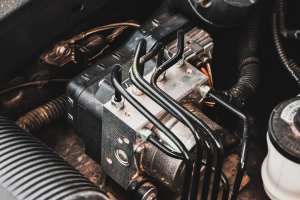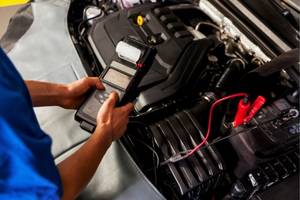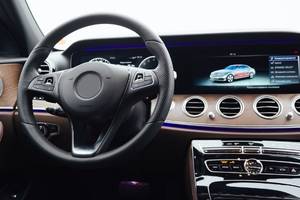Introduction
If you're a BMW enthusiast or a mechanic dedicated to maintaining the excellence of this prestigious brand, understanding the BMW Engine Control Unit (ECU) is necessary. The ECU is more than just an electronic component; it's the command center that makes sure your BMW's engine operates with accuracy and efficiency. This guide will walk you through the essentials of the BMW ECU, common issues that can arise, and how to troubleshoot and choose the right unit for your vehicle. Let’s dive right into the world of BMW ECUs and uncover everything you need to know to keep your BMW running smoothly.
1. BMW Engine Control Unit: An Overview
BMW is known for its innovation and accuracy in the world of automobiles. And one such innovative component is the BMW Engine Control Unit. Now, you might be wondering, "What's an ECU?" In simple terms, the ECU is the brain of the vehicle. It supervises and manages the engine's performance, making sure it runs efficiently and smoothly.
Here's what it does:
Fuel Injection: The BMW engine control unit calculates the amount of fuel to be injected into the engine based on factors like engine temperature, speed, and load.
Ignition Timing: The ECU determines the best time to ignite the fuel-air mixture in the engine's cylinders to achieve ideal combustion.
Air Supply: It regulates the amount of air supplied to the engine, balancing it with the fuel to maintain the right air-fuel ratio.
Emission Control: The BMW ECU also controls the emissions from your vehicle, ensuring it meets environmental standards.
You see, the BMW engine control unit is more than just a component; it's the heart and soul of your vehicle's engine. So, when it starts to fails, you bet you're going to notice.
But don't worry! In our next section, we'll take a look at the common problems with BMW ECUs, followed by some useful troubleshooting tips. And finally, we'll give you a few key pointers on how to choose the right BMW engine control unit when it's time for a replacement. So, stay tuned!
2. Common Problems with BMW Engine Control Units
Just like any other car component, your BMW engine control unit can run into a few hiccups from time to time. Recognizing these issues early on can save you a lot of time, money, and frustration down the line. So, let's dive right into some of the most common issues you might come across.
Unexpected Stalling or Misfiring: If your BMW is stalling or misfiring unexpectedly, it might be the ECU sending incorrect instructions to the engine.
Poor Fuel Efficiency: A faulty BMW engine control unit can mess up the fuel-air mixture in your engine, leading to decreased fuel efficiency. If you find yourself filling up the fuel more often than usual, it's wise to check your ECU.
Difficulty Starting the Car: A malfunctioning ECU can cause your car to have trouble at starting or might prevent it from starting altogether.
Check Engine Light: This is the most common one. If your BMW's check engine light is on, your engine control unit could be the culprit.
Unusual Engine Behavior: If your engine is behaving oddly, such as revving up and down unexpectedly, your ECU might be to blame.
Remember, these are just possible symptoms. If you observe any of these, it's best to have your BMW inspected by a professional. They can correctly diagnose if the problem truly lies with the BMW engine control unit, or if it's something else.
In the next section, we'll go over some troubleshooting tips to help you deal with these ECU problems. So, keep reading!
3. Troubleshooting Tips for BMW Engine Control Units
Now that we've covered the common issues you might come across with your BMW engine control unit, let's move on to some practical tips to help you troubleshoot these problems. Remember, a little bit of know-how can go a long way when it comes to keeping your BMW running smoothly.
Reset the ECU: Sometimes, just like our computers, your BMW engine control unit might need a good reset. Disconnecting the battery for about 30 minutes can do the trick. After reconnecting, give your BMW a test drive to see if the problem continues.
Check the Wiring: Faulty wiring can often be the cause of ECU problems. Examine the wiring leading to your ECU for any signs of damage or wear and tear.
Inspect the Sensors: The sensors supply your ECU with the data it needs to control your engine. A faulty sensor can lead to a misbehaving ECU, so make sure to check them regularly.
Professional Inspection: If you're still experiencing issues after trying these tips, it might be time to take your BMW to a professional. A diagnostic test can find whether the issue truly lies with the BMW engine control unit or somewhere else.
And there you have it! A few simple yet effective troubleshooting tips for your BMW engine control unit. But what if you need a new ECU entirely? Don't worry, I've got you covered. In the next section, we'll discuss how to choose the right BMW engine control unit for your ride. So, get ready!
4. Buying Tips: Choosing the Right BMW Engine Control Unit
Ready to shop for a new BMW engine control unit? You've come to the right place. Here are some smart buying tips to help you make the best choice for your BMW.
Know Your Model
Every BMW model has a specific engine control unit designed for optimal performance. So, the first step is to understand the exact model and year of your BMW. It's always a good idea to have this information with you when shopping for a new ECU.
Choose a Trusted Supplier
Not all BMW engine control units are created equal. Some suppliers may sell refurbished or fake units. To avoid this, opt for a trusted supplier known for their quality parts. A good rule of thumb: if the deal looks too good to be true, it probably is.
Check the Warranty
A warranty can provide mental peace when investing in a new BMW engine control unit. It's a sign that the supplier stands by the quality of their product. So don't forget to check the warranty terms before making a purchase.
Installation Support
Some suppliers offer installation support or even professional installation services. If you're not comfortable installing the ECU by yourself, this could be an important factor to consider.
Compare Prices
Finally, while you shouldn't compromise on quality, it's always a good idea to compare prices before making a decision. This way, you can make sure that you're getting the best value for your money.
And that's it! With these tips in mind, you're now ready to find the perfect BMW engine control unit for your vehicle. Happy shopping!
Conclusion
Mastering the variations of your BMW's Engine Control Unit can notably impact the performance and longlife of your vehicle. From identifying common ECU problems to applying effective troubleshooting techniques, a well-informed approach will help you address issues quickly. Whether you’re replacing a malfunctioning ECU or simply seeking to understand this important component better, having the right knowledge and resources is key. With the tips provided, you’re well-equipped to make sure that your BMW continues to deliver the exceptional driving experience you expect.
FAQs on
Guide to BMW Engine Control Unit in 2025 : Troubleshooting and Buying Tips
-
1. What is a BMW Engine Control Unit (ECU) and why is it important?
Ans.
The BMW ECU is a crucial component that manages and enhances the engine’s performance. It controls fuel injection, ignition timing, air supply, and emission levels. Essentially, it's the brain of the engine, making sure it operates efficiently and smoothly.
-
2. What are some common signs that my BMW ECU might be failing?
Ans.
Common signs include unexpected stalling or misfiring, poor fuel efficiency, difficulty starting the car, a constant check engine light, and unusual engine behavior. If you notice any of these symptoms, it's important to have your ECU inspected.
-
3. How can I troubleshoot problems with my BMW ECU?
Ans.
Start by resetting the ECU, which can sometimes resolve issues. Check the wiring for any damage and inspect the sensors that provide data to the ECU. If problems continue, seek a professional diagnostic to precisely find the issue.
-
4. How do I choose the right BMW ECU for my vehicle?
Ans.
Make sure you know the exact model and year of your BMW, choose a reputable supplier, check for warranty options, and consider whether installation support is offered. Comparing prices while focusing on quality can also help in making the right choice.
-
5. Can I repair a faulty BMW ECU or do I need to replace it?
Ans.
In some cases, minor issues with the ECU can be repaired, but often replacement is the more reliable solution. It depends on the extent of the damage and whether a repair is feasible or cost-effective compared to buying a new unit.
-
6. Is it necessary to have a professional install the new BMW ECU?
Ans.
While some enthusiasts may choose to install the ECU themselves, professional installation is recommended to make sure proper setup and avoid potential issues. Many suppliers offer installation services or support to help with the process.


